
Cracker Jack is an American brand of snack food that consists of molasses-flavored, caramel-coated popcorn, and peanuts, well known for being packaged with a prize of trivial value inside. The Cracker Jack name and slogan, "The More You Eat The More You Want", were registered in 1896. Some food historians consider it the first junk food.

Candy Land is a simple racing board game published by Hasbro. The game requires no reading and minimal counting skills, making it suitable for young children. No strategy is involved as players are never required to make choices; only following directions is required. About one million copies per year are sold.

Snickers is a chocolate bar consisting of nougat topped with caramel and peanuts, and all encased in milk chocolate. The bars are made by the American company Mars, Inc. The annual global sales of Snickers was over $3 billion as of 2012.

Between the Lions is an American animated/live-action/puppet children's television series designed to promote reading. The show was a co-production between WGBH in Boston and Sirius Thinking, Ltd., in New York City, in association with Mississippi Public Broadcasting, the distributor from seasons 5–10, in Mississippi. The show won seven Daytime Emmy awards between 2001 and 2007. It is created by alumni of Sesame Street and several season 2 episodes, notably in the Dance in Smarty Pants music videos, had a few characters from Sesame Street guest appearing. The show ran from April 3, 2000 to November 22, 2010, taking the schedule slot held by The Puzzle Place upon the latter's debut.

Baby Ruth is an American candy bar made of peanuts, caramel, and milk chocolate-flavored nougat, covered in compound chocolate. It is distributed by the Ferrara Candy Company, a subsidiary of Ferrero.

Svengoolie is an American hosted horror movie television program. The show features horror and science fiction films and is hosted by the eponymous character Svengoolie, who was originally played by Jerry G. Bishop from 1970 to 1973, before Rich Koz succeeded him in the role from 1979 on. Before and after commercial breaks, Svengoolie presents sketches, tells jokes, and performs parody songs related to the films being aired. The show is a long-running local program in the Chicago area and in recent years expanded nationally, airing Saturday nights on MeTV.
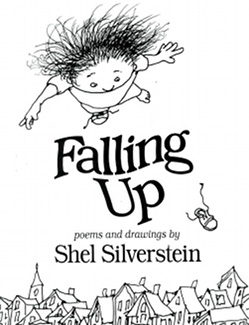
Falling Up is a 1996 poetry collection primarily for children written and illustrated by Shel Silverstein and published by HarperCollins. It is the third poetry collection published by Silverstein, following Where the Sidewalk Ends (1974) and A Light in the Attic (1981), and the final one to be published during his lifetime, as he died just three years after its release. Falling Up was the recipient of the Booklist Editors' Award in 1996.. In 2015, a special edition of the book was published, with 12 new poems.

Ronald D. Sweed was an American entertainer and author, known for his late-night television horror host character "The Ghoul".
Larry Curtis Johnson, better known by his stage name Maurice Starr, is an American musician, songwriter, and record producer. He is best known for his work creating songs and albums with boy bands New Edition and New Kids on the Block. He was fired by New Edition for embezzling funds.
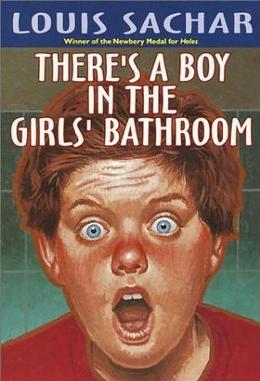
There's a Boy in the Girls' Bathroom is a 1987 juvenile fiction book from the author Louis Sachar, about a fifth-grade bully named Bradley whose behavior improves after intervention from a school counselor. The title comes from a point when a character, Jeff, is horribly embarrassed after accidentally entering the girls' bathroom while trying to go to the school counselor's office when a teacher gives him the wrong directions.
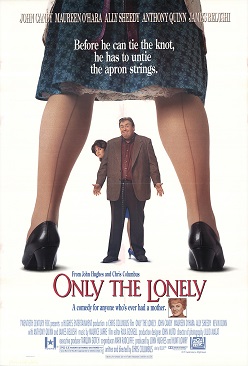
Only the Lonely is a 1991 American romantic comedy-drama film written and directed by Chris Columbus, produced by John Hughes, and stars John Candy, Maureen O'Hara, Ally Sheedy and Anthony Quinn. The film is a comedic take on the premise established in the 1953 television play Marty and the 1955 film Marty, while the title comes from the song "Only the Lonely" by Roy Orbison. The story follows a bachelor who is looking to settle down and start a family with a mortuary beautician, while coping with his overbearing mother who does not approve of her.
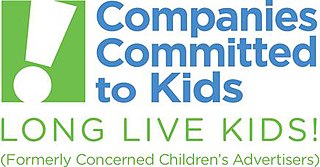
Companies Committed to Kids was a Canadian non-profit organization based in Toronto, founded in 1990 by former chief executive officer Sunni Boot and former president of the Global Television Network David Mintz as a contributive production-wide body dedicated to launching campaigns and expressing the significance of their public service announcements to target children between the ages of eight and 12. It produced over 30 announcements, covering topics such as drug abuse, conformity, self-esteem, and bullying. Each PSA ends with the logo of the organization. Usually, the commercials partnered up with Health Canada.

The Land of Toys is a fictional location in the Italian novel The Adventures of Pinocchio (1883) that is disguised as a haven of freedom and anarchy for boys and occasionally girls, but is eventually discovered to be far more sinister.
Epic Meal Time is a Canadian YouTube cooking show known for creating extremely high-calorie meals, generally out of meat products and including alcohol. It debuted in October 2010, and since then has started to release an episode every Tuesday. It is hosted by Harley Morenstein and a group of his friends. They are now represented by The Gersh Agency and Brillstein-Grey Entertainment, and have signed with multi-channel network Collective Digital Studio. Epic Meal Time won the 2011 Shorty Award in the Food Category.

How to Eat Like a Child – And Other Lessons in Not Being a Grown-up is an original musical comedy television special that aired on NBC on September 22, 1981. Based on Delia Ephron's best-selling book of the same name, and adapted for television by Judith Kahan with music and lyrics by John Forster, the one-hour special, through a series of comedy skits and songs, lampoons the adult world through the eyes of children. The musical variety stars Dick Van Dyke as the resident "grown-up" alongside 15 children ranging in age from 7 to 13. Several of the special's young performers would subsequently go on to achieve child stardom in their own right, most notably Corey Feldman, Billy Jacoby and Georg Olden.
You're Skitting Me is an Australian children's sketch comedy series that began airing on 29 February 2012 on ABC3. The cast consists of six teen actors who make up the main cast, as well as another six teens who make up the additional cast, who together perform numerous sketches or "skits". The show is composed of numerous short segments per episode, and pokes fun at and parodies many subjects and themes, such as TV shows, movies, cultural stereotypes, as well as controversial issues such as global warming. Twenty-six episodes and have been produced by Jigsaw Entertainment. The name of the series is a play on the phrase "You're Kidding Me".
Floopaloo, Where Are You? is a French animated series based on an original idea by Xilam's producer, Marc du Pontavice, and developed by Fabien Limousin with designs by Aurore Damant and Emmanuelle Fleury. Produced by the company Xilam in coproduction with France Télévisions and in association with Castelrosso Films and Rai Fiction, the series takes about 15 minutes per segment.
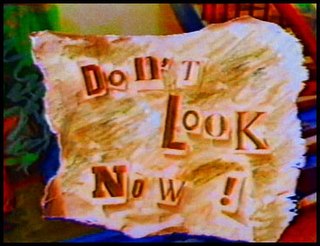
Don't Look Now is an American national children's sketch comedy show produced for PBS by WGBH-TV in Boston, Massachusetts, and created by Geoffrey Darby and Roger Price. It is a clone of their program for CTV and Nickelodeon, You Can't Do That on Television. The first episode aired on October 2, 1983, and showed its final episode on October 30, 1983. It was originally slated to be called Don't Tell Your Mother, but was later changed to its final title, Don't Look Now, due to PBS executive's concern that the title would encourage children to keep secrets from their parents. It was created out of uncertainty that their top show You Can't Do That on Television would continue, and was cancelled possibly due to the complaints of parents for its content, and also Nickelodeon's concern that if had it not been cancelled it may have spelled the end of You Can't Do That on Television.

Alina Morse is an American entrepreneur, the CEO of Zolli Candy, which she founded when she was ten years old. Her company sells the candy she developed: sugar free lollipops called Zollipops, hard candy called Zolli Drops, and taffy called Zaffi Taffy. The candy is sold online and in about 25,000 stores in the United States and internationally, totaling US$6 million in sales in 2018. She was the youngest person to be on the cover of Entrepreneur Magazine, and she was twice invited to the White House by First Lady Michelle Obama. In addition to being the CEO of a multi-million-dollar company, Morse goes to high school and dances competitively.

John Mulaney & the Sack Lunch Bunch is a children's musical comedy special created by John Mulaney that debuted on Netflix on December 24, 2019. The show, directed by Rhys Thomas, was written by Mulaney and Marika Sawyer and inspired by classic children's television series Sesame Street, The Electric Company and The Great Space Coaster. Eli Bolin composed the music, with lyrics from Mulaney and Sawyer.